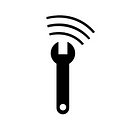Moments of Discontinuity Show Opportunities for Meaningful Change
Meghann Lucy (she/her) is a 2020 Summer Fellow with the Mayor’s Office of New Urban Mechanics focusing on approaches to civic participation in the context of a blended environment of the digital and physical.
This has been an unexpected and unprecedented year. In the wake of such incredible events, it is easy to forget that the US president was acquitted of impeachment just a few months ago. The first wave of a global pandemic, which at the time of writing has been responsible for the deaths of over 500,000 people, has disrupted life as we knew it. Countries and cities shuttered, economies slowed, scientists scrambled to learn the contours of an invisible foe, schools closed, millions were laid off or furloughed from their jobs, and governments attempted to track the movements of those who contracted the virus. Citizens were asked to stay home, cancel travel, maintain distance from others, wear face and hand coverings, and try to mitigate the spread to those most vulnerable in their lives. For billions, our busy, repetitive lives ground to a halt.
It sometimes feels like a grand social experiment. The practices and facades that bolster seemingly monolithic and intractable systems, institutions, and norms were suddenly laid bare. Vast inequalities were displayed. Grocery store workers, Dunkin Donut employees, and others were deemed essential workers without the benefits befitting such a designation. Black, brown, and poor communities were allowed to take on a disproportionate share of the burden of the virus — and denied the affordable healthcare and paid sick time that could have reduced that burden. Parents were reminded of the hard work of teachers and childcare workers. Participation in the events that entertain and distract us was limited. People became (re)attuned to space and place. The research question guiding this grand experiment: How do we choose to change the way we live in this new context?

Meaningful lives were lost and harmed during this pandemic and will likely continue to be. Yet, the conditions of this pandemic have made more mainstream the realization that stark inequalities and state-sanctioned violence characterize millions of American lives. This moment has created an opportunity to interrogate the ways that inequality and injustice function and our roles in perpetuating them. To ask the why questions fundamental to the work of government. And to figure out how we will change it.
As a summer fellow with the MONUM team, I’ve been tasked with both understanding more about how the city has transitioned to remote civic engagement during the pandemic and reimagining what civic participation could look like in a “blended” future with remote and in-person opportunities. The initial results of remote participation are promising: Double and triple the number of Bostonians have been attending digital city meetings than had before the pandemic. There is a chance that incorporating digital formats could bring in voices we haven’t been great at reaching before, including younger residents, those with young children, and people with jobs with “nonstandard” hours. What seems clear is that we can’t — and shouldn’t — simply revert to old ways of doing things once it is safe to be together in rooms again. The “new normal” does not inevitably have to look like a masked version of getting back to the way things were. If we really want it to, we can use this moment to fundamentally change the way we do things and how we view and engage with each other.
Meghann is a PhD student in Sociology at Boston University, whose research focuses on consumption, pop culture, and the development of medical knowledge and novel disorders. Prior to starting her PhD, she worked for the children’s book publisher Scholastic and the Cardiovascular Research Foundation, as a barista, and even for coal mines during school vacations as an undergrad. Meghann has a BA in Political Science from the University of Wyoming and an MA in Liberal Studies: American Studies from the CUNY Graduate Center. She originally hails from the rectangular state of Wyoming and loves pugs, reading, flora (by extension, Boston springs and summers), and trying new things.
About the Fellowship:
The New Urban Mechanics Summer Fellowship is designed for entrepreneurial students and professionals interested in working in public service. During this highly selective eight-week program, summer fellows work as a team and on their own projects, generating and implementing creative and thoughtful new prototypes to benefit the City of Boston.
